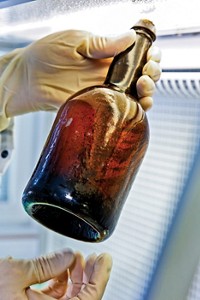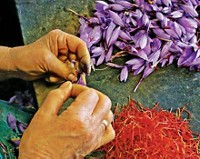Advertisement
Grab your lab coat. Let's get started
Welcome!
Welcome!
Create an account below to get 6 C&EN articles per month, receive newsletters and more - all free.
It seems this is your first time logging in online. Please enter the following information to continue.
As an ACS member you automatically get access to this site. All we need is few more details to create your reading experience.
Not you? Sign in with a different account.
Not you? Sign in with a different account.
ERROR 1
ERROR 1
ERROR 2
ERROR 2
ERROR 2
ERROR 2
ERROR 2
Password and Confirm password must match.
If you have an ACS member number, please enter it here so we can link this account to your membership. (optional)
ERROR 2
ACS values your privacy. By submitting your information, you are gaining access to C&EN and subscribing to our weekly newsletter. We use the information you provide to make your reading experience better, and we will never sell your data to third party members.
Environment
Oak Barrel Provenance Alters Wine Chemistry
Geographic traits in barrel woods shape wine's complexity
by Sarah Everts
June 1, 2009
| A version of this story appeared in
Volume 87, Issue 22
A glass of wine's molecular profile is fine-tuned by variables as widespread as the weather during the grape growing season or the yeast strain that fermented the sugars into ethanol. Now, researchers report that the geographical provenance of oak trees used to make the barrels that hold the fermenting fluid can also leave a lasting imprint on wine's chemistry (Proc. Nat. Acad. Sci. USA, DOI: 10.1073/pnas.0901100106). A team led by physical chemist Régis D. Gougeon of the University of Burgundy, in Dijon, France, and mass spectrometrist Philippe Schmitt-Kopplin of the German Research Center for Environmental Health, in Munich, examined wines from four grape varietals that had been aged in barrels built from oak wood species from nine regions of France. By using mass spectrometry and advanced statistics, the team was able to discern chemical signatures of the different tree species in wines aged in barrels made of them. For instance, in wine aged in barrels made from trees in France's northeast Bitche forests, the scientists observed a signature composed of hundreds of compounds derived from both oak and lichen growing on trees in that region. Examples include metabolites of quercetin, a compound with possible anticancer qualities, and metabolites of the bitter lichen product atranorin.





Join the conversation
Contact the reporter
Submit a Letter to the Editor for publication
Engage with us on Twitter